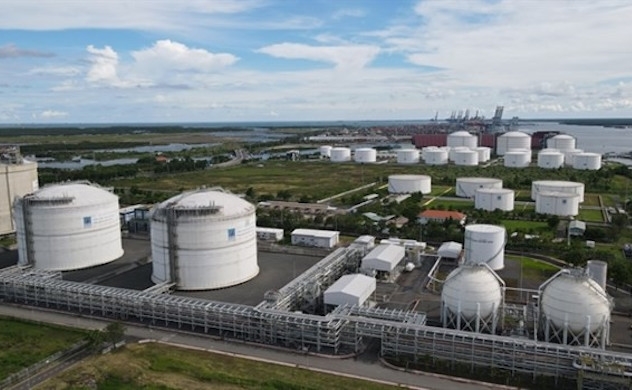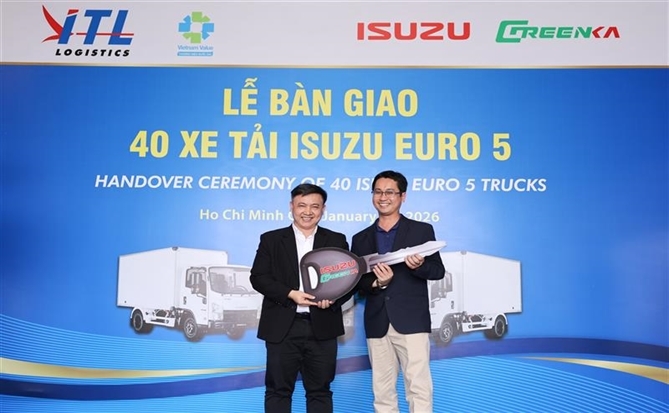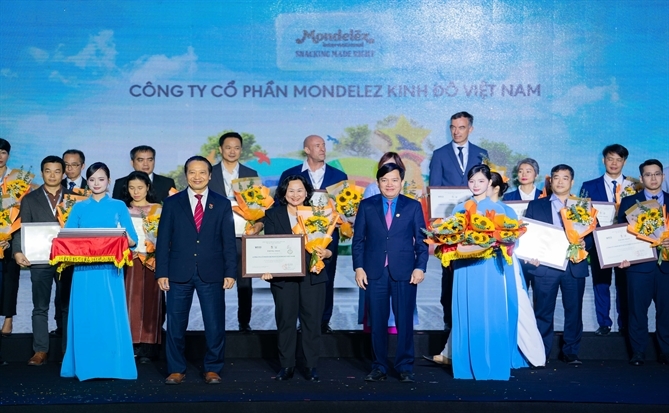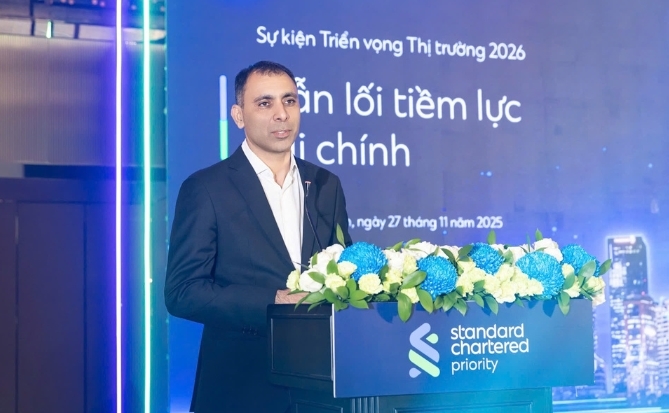Infrastructure, planning and market keys to LNG power development

Photo by VNA.
Deputy head of the Electricity and Renewable Energy Department under the Ministry of Industry and Trade (MoIT) Bui Quoc Hung said the importation of LNG must follow international trade standards and regulations while Vietnam is still lacking in many key areas including design, construction, and operation of infrastructure for LNG imports.
As of now, the country has not yet developed a fully functional legal framework for its LNG power projects. This is especially concerning as LNG prices have seen significant fluctuations in recent years, which will likely hurt price-sensitive markets such as Vietnam.
In addition, LNG power projects often require long-term commitments and are subject to market changes and international geopolitical events. They also often demand an advanced level of technology and large capital investments by experienced and financially capable investors.
Hung said the biggest challenge for LNG power projects, from an investor's perspective, lies in negotiating Power Purchase Agreements (PPA), which must be conducted in accordance with the regulations of the MoIT.
Industry experts said such projects will likely face fierce competition from other power-generating plants, traditional and renewable, as the Vietnamese Government does not offer guarantees for LNG.
Deputy Director-General of PetroVietnam Gas (PV Gas) Huỳnh Quang Hai said one of the most difficult challenges to overcome was a lack of centralised LNG storage facility.
"The idea is to have multiple storages for LNG to supply multiple LNG power plants but many localities still have no plans for warehouses and pipelines. It will be extremely challenging to meet the plants' demand with just one warehouse," he said.
Hai proposed having dedicated warehouses for each LNG power plant to bring down transport costs and the construction of warehouse hubs and ports. He said the Government must quickly establish policies related to LNG projects, including transitioning prices, LNG purchase contracts and power purchase contracts.
Economist Ngo Tri Long said pricing remains a key problem, holding back the development of an LNG market in Vietnam.
He advised the Government to employ a market-oriented approach while trying to balance the rights and interests of both investors and consumers. This is especially important to LNG power projects as LNG import costs typically amount to 70-80% of its total costs.
He said Vietnam could consider setting up several specialised import hubs to supply LNG power projects, which are under the management of the State, to ensure transparency and compliance.
He said the Government must select capable investors, offer additional financial incentives, standardise technical and legal requirements to give the market a boost.
"It is unlikely LNG projects can proceed according to schedule and operate efficiently without a form of guarantee and successfully negotiated PPAs," Long said.
Economist Dinh Trong Thinh from the Vietnam Academy of Finance said LNG power is to play a key part in meeting Vietnam’s energy target, which has been projected at 150.000-160.000MW in 2030 or double the country's current output.
In addition, as Vietnam remains committed to lowering its carbon emissions the country's power sector must maintain growth while going under a major restructuring process.
Under the National Power Plan VIII, LNG power was expected to increase from 7GW (10.2% of the total output) in 2020 to 32GW (21.8% of total output) in 2030. He said LNG remains a viable option to make up for shortfalls from output generated from renewable sources and a key component in ensuring Việt Nam's energy security.
Nguyen Hung Dung, deputy chairman and secretary-general of the Vietnam Petroleum Association, said under the National Power Plan VIII there is only one 1-million tonnes storage planned while many localities across the country have voiced their interest in developing LNG.
"The sector's key issues remain profitability and the sustainable development of a strong and fair LNG market," he said.
Source: Vietnamplus
Same category news
Latest news
-
Hong Thu - Bao Han
Ms. Luu Bao Huong, Chairwoman of GG Corporation: Logic guides, the heart ...

 TIẾNG VIỆT
TIẾNG VIỆT 

_131447820.png)













